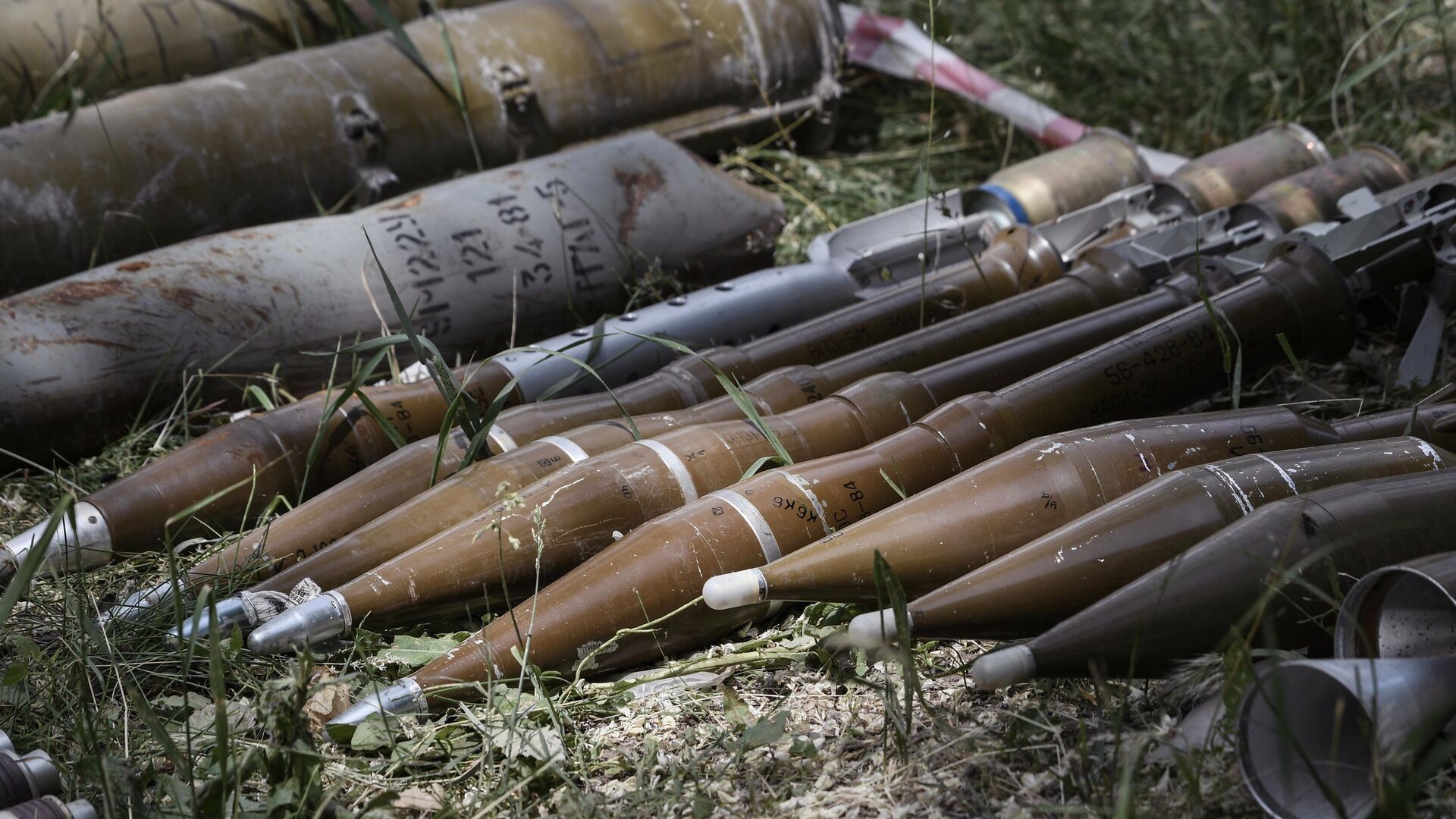Military Experts: Ukraine Used Black Sea Grain Corridor for Weapons Smuggling and Terror Attacks
09:31 19.07.2023 (Updated: 10:50 03.08.2023)

© Sputnik . Konstantin Mihalchevskiy
/ Subscribe
The Kiev regime took advantage of the deal to transfer weapons and as a convenient guise for its terrorist operations against Russian civilian infrastructure, military experts told Sputnik.
On July 17, the Black Sea Grain Deal expired and Russia decided not to extend it, given that the agreement was never implemented in its entirety by the collective West.
What's more, Ukraine used the safe grain corridor for military purposes, as per Russian military expert Retired Сolonel Viktor Litovkin.
"[Ukraine] used civilian ships to transport weapons back and forth," Litovkin told Sputnik. "We know that the Ukrainian authorities (maybe not the authorities, but people close to the authorities) actively used black markets for supplies, for resale of weapons to the Middle East and even to France. In France those types of weapons were found that had been supplied to [Ukraine] by Western countries. They managed to resell some of these weapons to the West, to Africa, to the Middle East."
"They also received weapons covered with grain: it came to Odessa and was then sent from Odessa to various other places. Let alone the fact that under the guise of a grain deal, including the one that occurred last night [on July 17], they launched an unmanned sea surface drone that blew up part of the Crimean Bridge," continued Litovkin.
On Monday, the Russian National Anti-Terrorism Committee said that Kiev carried out a terrorist attack on the Crimean Bridge that connects mainland Russia and Crimea. The July 17 sabotage became Ukraine's second attack on the bridge. Earlier, on October 8, 2022, Ukrainian saboteurs exploded a truck on the bridge and caused seven fuel tanks of a freight train to catch fire and two car spans partially to collapse, killing three civilians. Kiev admitted its complicity in both terrorist attacks.
In addition, part of the attacks carried out by Ukrainian drones against the peninsula was conducted from the area of the Black Sea safe corridor, as per Boris Rozhin, a military expert with the Center for Military-Political Journalism, an independent Russian military affairs think tank.
"Part of the drone attacks was carried out from the zone where the grain corridor passed, that is, it was used as a cover," Rozhin told Sputnik. "The ships that sailed there were also used as cover. Therefore, of course, it was initially clear that the enemy would use the grain corridor specifically for military purposes. Attacks on Sevastopol and other attacks originated from the grain corridor zone or passed through the green corridor zone, especially those attacks that came from Izmail or from the Odessa region. That is, they somehow passed through the territory of the grain corridor."
How Will Deal's Suspension Affect Special Military Op?
Having frozen the Black Sea Grain Deal, Moscow highlighted that it is ready to resume it if the West implements its part of the agreement, with Ukraine ceasing its terrorist activities in the region. As of yet, Russia is expected to step up its security in the Black Sea, according to Sputnik's interlocutors.
Meanwhile, Ukraine has shrugged off Moscow's proposal and signaled that it wants to continue shipping its grain regardless of Russia's suspension of the deal.
According to Litovkin, Russia has a number of possible options to ensure its security: First, it can declare the northwestern part of the Black Sea a combat zone. "And [the Russian military] will not let a single ship go there, not a single vessel, not only warships, but also civilian ships," the retired colonel assumed.
Second, Russia could target the Odessa and Nikolaev ports, where the grain is being loaded, thus halting their operation. Ideally, if Russia liberated Odessa and Nikolaev from the Kiev "Banderite" regime, it would be completely guaranteed that Ukraine would not strike Crimea and Russian ships with unmanned surface or underwater drones, Litovkin suggested.
In general, Sputnik's interlocutors don't expect any drastic shift in the course of the Russian special military operation in the aftermath of the grain deal suspension.
"I don't think any major changes would happen in the northwestern part of the Black Sea," said Rozhin. "Landing operations aren't expected, forcing the Dnepr from [Russia's] side in the direction of Nikolaev in the coming months is also unlikely to take place."
However, the expert projected that military actions on the Krasnolimanskoe and Kupyanskoe directions will be intensified. Likewise, there will be more active operations in the Donetsk region, Rozhin suggested.
"Naturally, at least until the [autumn] thaw, intense fighting will continue in the Zaporozhye direction on the front from Kamensky to Ugledar," the military expert concluded.
